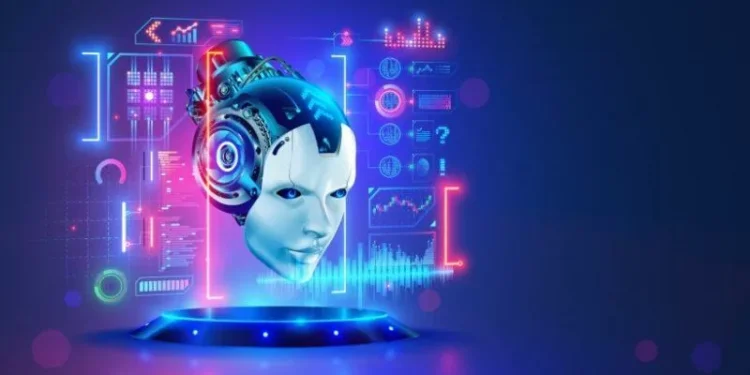In recent years, we have seen a rapid rise in the use of Artificial Intelligence (AI) in various industries. From self-driving cars to virtual assistants, AI has become an integral part of our daily lives. With its ability to analyze vast amounts of data and make decisions, AI has proven to be a game-changer in many fields. However, as AI continues to dominate, humans are struggling to keep up. This has sparked a debate on whether AI will eventually replace humans in the workforce. In this article, we will explore the current state of AI dominance and how humans can adapt and thrive in this changing landscape.
The Rise of AI
AI has come a long way since its inception in the 1950s. With advancements in technology and the availability of big data, AI has evolved into a powerful tool that can perform tasks that were once thought to be exclusive to humans. From chatbots to image recognition, AI has proven to be more accurate and efficient than humans in many areas. This has led to its widespread adoption in industries such as healthcare, finance, and manufacturing.
One of the main reasons for the rapid rise of AI is its ability to learn and improve over time. Machine Learning (ML), a subset of AI, allows machines to learn from data and make decisions without being explicitly programmed. This has led to the development of AI systems that can perform complex tasks with a high level of accuracy. As a result, many companies are turning to AI to streamline their processes, reduce costs, and improve efficiency.
The Struggle of Humans
While AI continues to make strides in various industries, humans are struggling to keep up. With machines taking over tasks that were once performed by humans, many fear that AI will eventually replace human workers. This has led to concerns about job security and the future of work. However, experts believe that AI will not replace humans but rather augment their capabilities.
One of the main challenges for humans is the need to upskill and adapt to the changing job market. As AI takes over routine and repetitive tasks, humans will need to develop new skills to stay relevant. This means that continuous learning and upskilling will become crucial for individuals to thrive in the AI-dominated world. Companies also have a responsibility to reskill and retrain their employees to work alongside AI systems.
Another struggle for humans is the fear of losing control to machines. With AI systems making decisions based on data, there is a concern that humans may lose their ability to make critical decisions. However, it is important to remember that AI is only as good as the data it is trained on. Humans still play a crucial role in providing the right data and setting the parameters for AI systems. Therefore, it is essential for humans to understand and trust AI systems to work together effectively.
Adapting and Thriving in the AI-Dominated World
The rise of AI may seem daunting, but it also presents opportunities for humans to thrive. As AI takes over routine tasks, humans can focus on more creative and complex tasks that require critical thinking and problem-solving skills. This will lead to the creation of new job roles and industries that will require human expertise. For example, the development and maintenance of AI systems will require a skilled workforce.
To adapt and thrive in the AI-dominated world, humans need to embrace a growth mindset. This means being open to learning new skills and continuously upskilling to stay relevant. It also means being adaptable and willing to take on new challenges. As AI continues to evolve, new opportunities will arise, and humans need to be ready to seize them.
Collaboration between humans and AI is also crucial for success in the future. Rather than seeing AI as a threat, humans should view it as a tool to enhance their capabilities. By working together, humans and AI can achieve more than they could on their own. This collaboration will also lead to the development of new and innovative solutions to complex problems.
Conclusion
AI dominance may seem like a cause for concern, but it also presents opportunities for humans to thrive. By embracing a growth mindset, upskilling, and collaborating with AI, humans can adapt and succeed in the changing landscape. It is important to remember that AI is not here to replace humans, but rather to augment their capabilities. As we continue to see advancements in AI, let us embrace the opportunities it presents and work towards a future where humans and AI can coexist and thrive together.






